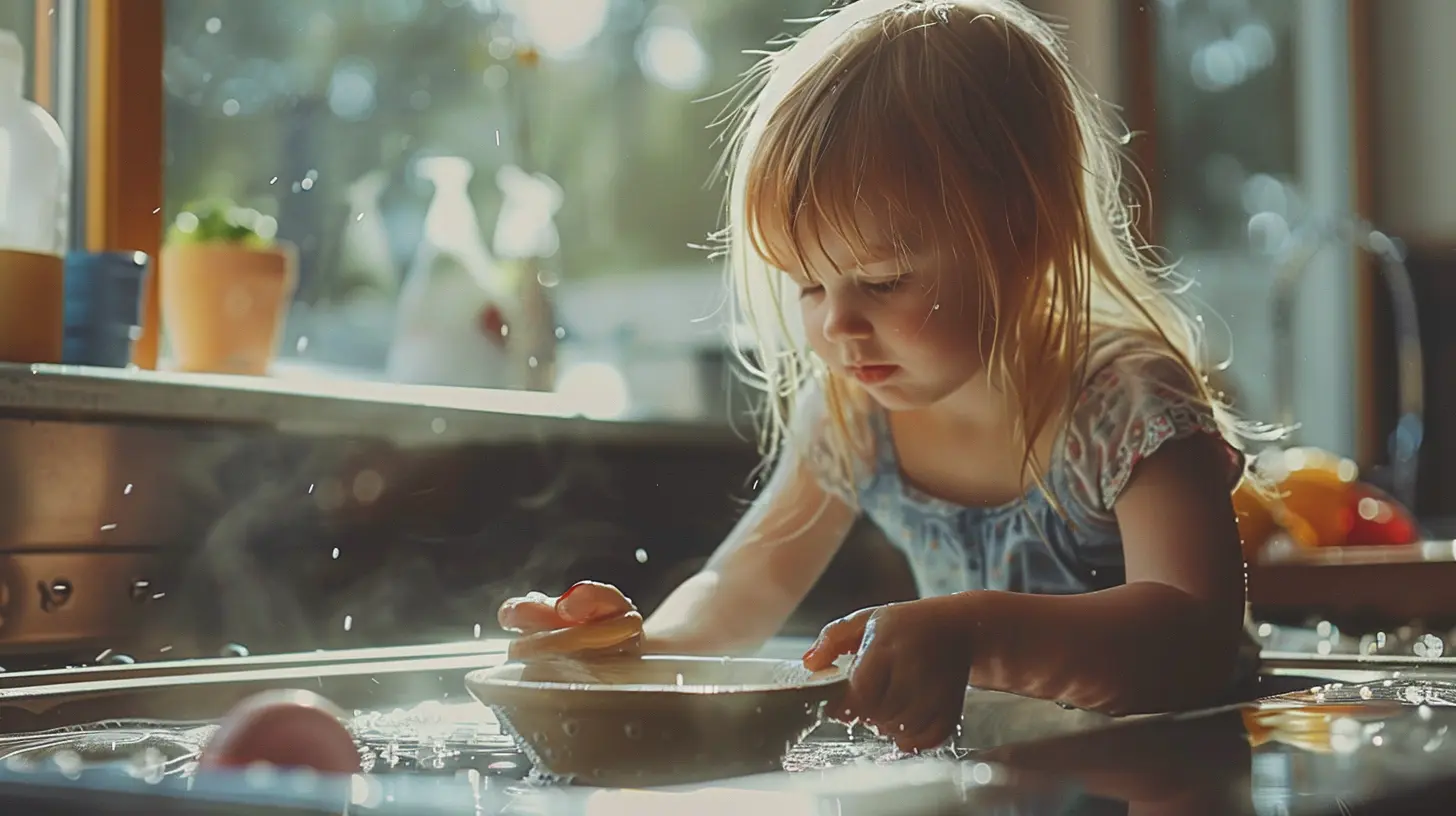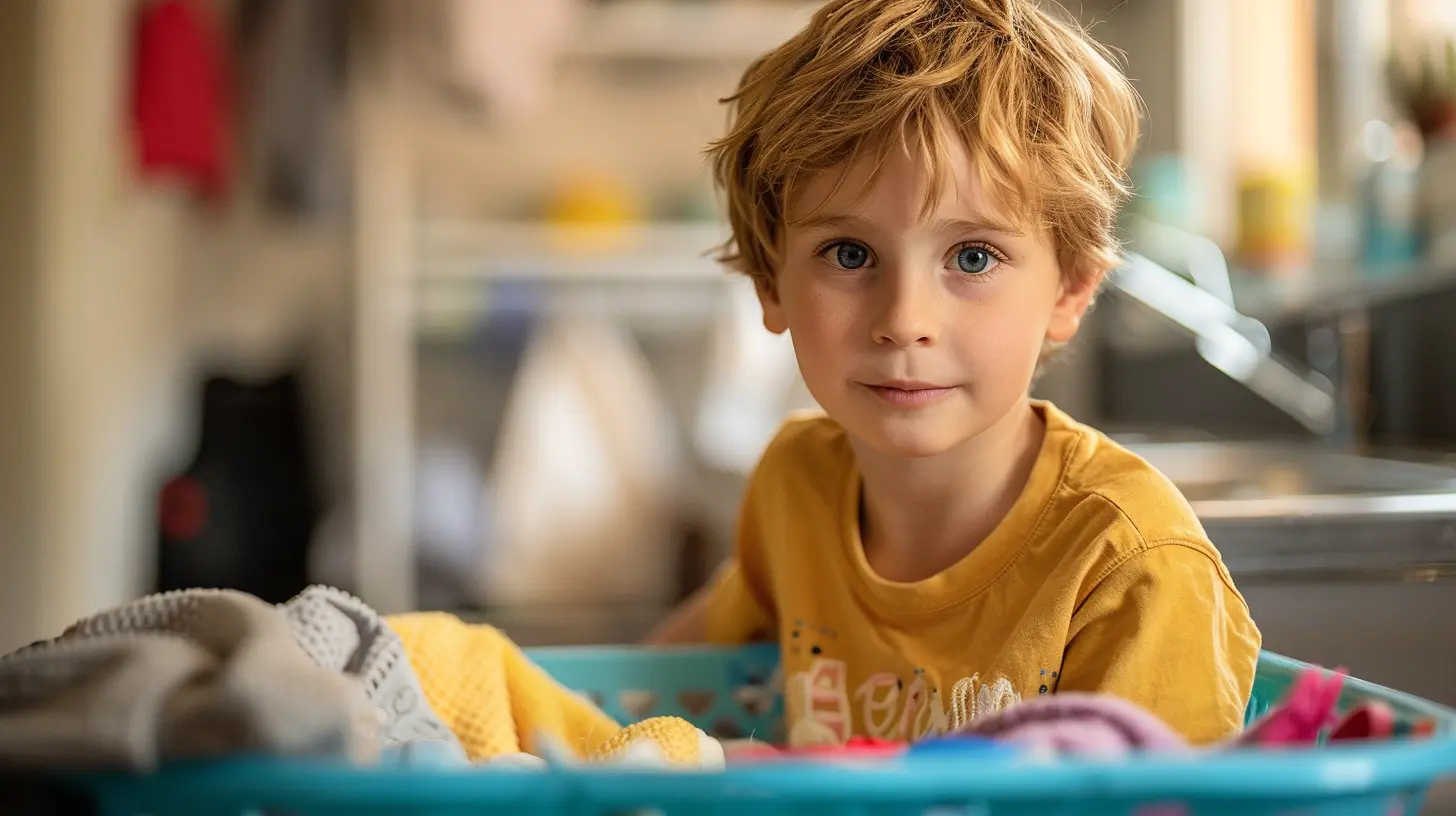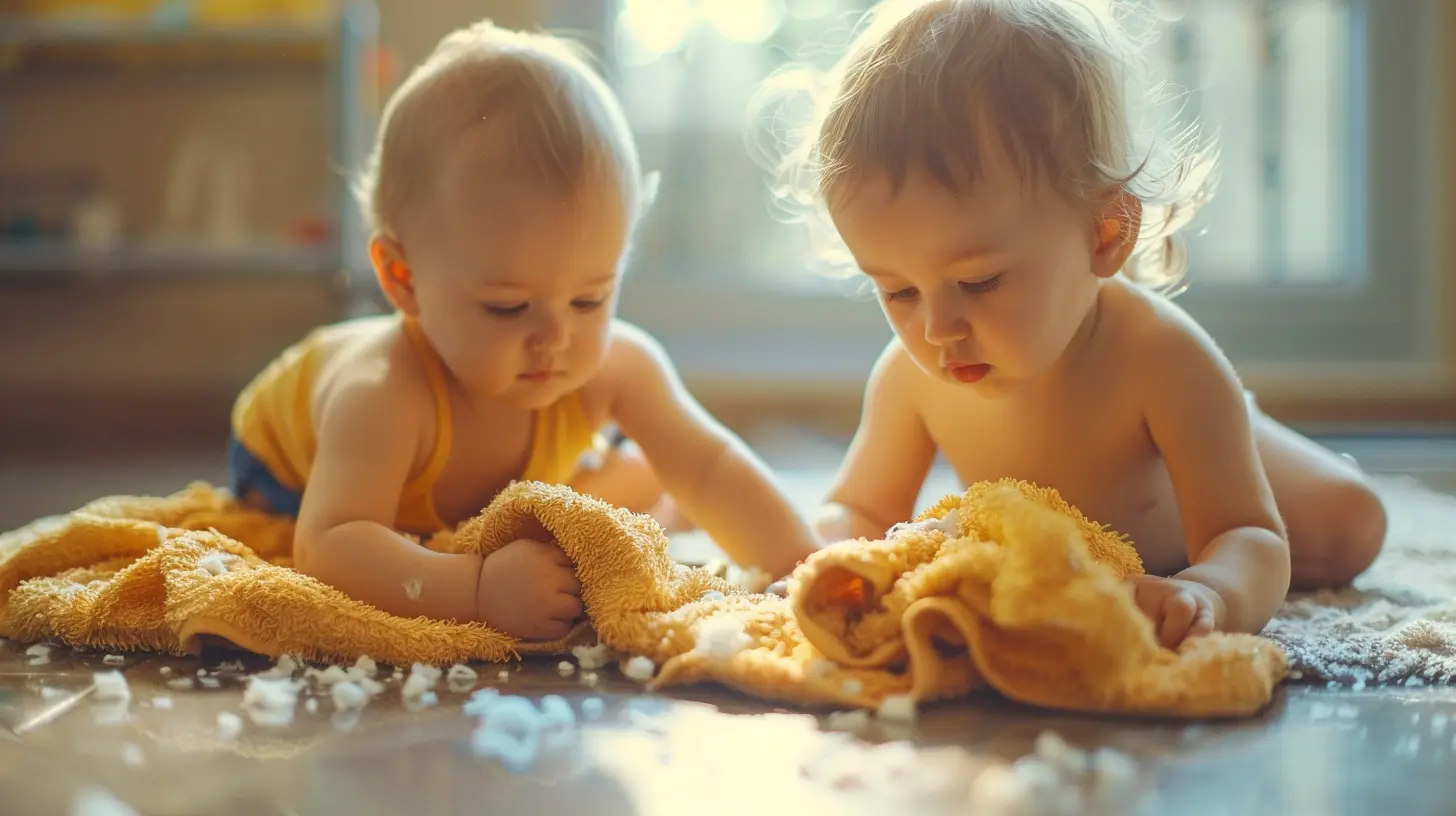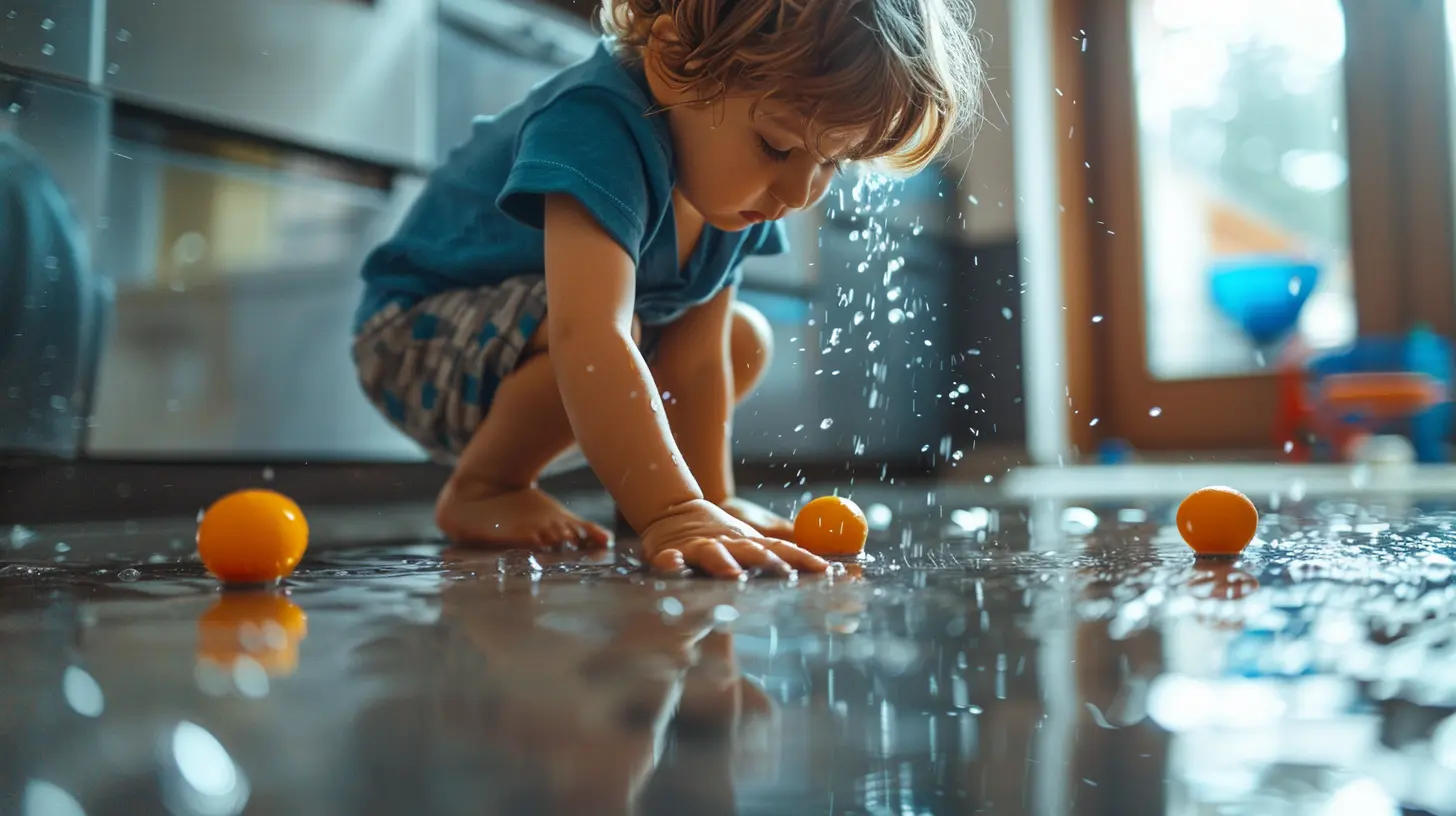Cultivating Accountability Through Household Responsibilities
28 June 2025
Let’s be honest: getting kids to help out around the house can feel like herding cats—frustrating, unpredictable, and occasionally hilarious. But what if I told you that those endless reminders to pick up Legos or set the table can actually do way more than just keep your home clean? Yup! These everyday household chores can teach your child one of life’s most valuable skills—accountability.
In this post, we’re diving into the nitty-gritty of how assigning and managing household responsibilities can build responsibility, foster independence, and shape your child into someone who knows how to own their actions. So roll up your sleeves, grab that broom (or better yet, hand it over to your kid), and let’s get into it.
Why Accountability Matters (Especially For Kids)
Think about the last time your child forgot their homework or left their backpack at school. You probably resisted the urge to zoom back and save the day, right? (Well… maybe not every time.)Accountability isn’t just about getting stuff done—it’s about owning what you do or don’t do. When kids understand that their actions have consequences—good or bad—they start learning to take initiative, follow through, and make better choices.
And the best part? You don’t need a fancy curriculum to teach it. You just need your regular ol’ house and a willingness to be consistent.
What Does “Household Responsibility” Really Mean?
Let’s clear this up: household responsibilities aren’t about child labor. We’re not talking about turning your 8-year-old into a live-in butler. 😂We’re talking about age-appropriate tasks that contribute to the family unit. Think: making their bed, feeding the dog, folding laundry, or helping with dinner prep. These tasks might seem small, but they’re powerful tools for teaching life lessons.
The Link Between Chores and Accountability
1. Chores Create Ownership
When your child has a specific task they’re responsible for—like watering the plants—they develop a sense of ownership. That task becomes their “thing.” And guess what? When something’s your thing, you’re far more likely to care about how it turns out.2. They Learn Consequences (Without Harsh Punishments)
Let’s say your teen is supposed to do the dishes but skips out to scroll TikTok instead. No dish fairy is coming to the rescue. Once there are no clean plates for breakfast, the natural consequence becomes crystal clear.These real-life “oops” moments are golden—they teach kids that their actions (or inactions) affect others, not just themselves.
3. Routine = Responsibility
Giving your child regular chores builds a routine. And routine is like a secret ingredient in the recipe of responsibility. It teaches them to do what needs to be done—even when they don’t feel like it. That’s real-world prep at its finest.
How to Get Started Without a Full-Blown Revolt
So how do you introduce household responsibilities without facing a full-on mutiny? Easy—start small, keep it fun, and lead by example. Here’s how:1. Start Young and Keep It Simple
Toddlers can help put toys away. Preschoolers can sort laundry by color. Kids love to mimic adults, so give them something to copy! Make it feel like a game rather than a job.2. Match Tasks to Their Age
Here’s a quick cheat sheet:- Ages 2–4: Pick up toys, put clothes in hamper, dust with socks
- Ages 5–7: Make bed, set the table, feed pets
- Ages 8–10: Take out trash, fold laundry, vacuum
- Ages 11+: Cook simple meals, clean bathroom, mow the lawn
Is it going to be perfect? Nope. But that’s not the goal. Progress over perfection always wins.
3. Keep Expectations Clear
Be specific. Saying “clean your room” can mean 100 different things to a 7-year-old. Instead, say “Put your books on the shelf, toys in the bin, and dirty clothes in the hamper."Clarity prevents pushback, confusion, and excuse-making. (Well… most of the time.)
4. Use Visuals to Stay Organized
Chore charts or whiteboards can work wonders. Not only do they keep everything visible, but checking off tasks gives kids a satisfying sense of accomplishment. Add stickers, magnets, or badges to make it feel like a fun challenge.Tips for Making Chores Stick (Without Nagging)
We get it—reminding someone 12 times to take out the garbage is draining. Try these methods instead:1. Integrate Tasks into Daily Routines
Link chores to everyday stuff. For example, “Before we watch a show, let’s clear the table.” It becomes part of the flow instead of this big, separate “ugh” task.2. Make It a Family Effort
When everyone pitches in—including parents—it sends a powerful message. We’re in this together. Cue the teamwork vibes.You can even set a timer and do 10-minute “power cleans” as a family. Blast some music, get silly, and make it something to look forward to.
3. Praise Effort, Not Perfection
Did your kid try really hard to sweep the floor but missed a few crumbs? That’s okay. Praise the effort. “I love how you remembered to do your chore today without being asked!”Positive reinforcement builds habits way faster than criticism. Always has, always will.
Making Room for Mistakes
Let’s be real: your kid’s gonna mess up. They’re going to forget, complain, maybe even throw a mini fit. But guess what? That’s part of learning.Instead of swooping in to fix everything, let them deal with the outcome. Didn’t pack lunch? They'll feel it at lunchtime. Clothes not folded? Maybe they won’t find their favorite shirt.
These bumps in the road are powerful teaching moments. They build resilience and responsibility over time.
Accountability Doesn’t Happen Overnight
This isn’t a one-and-done kind of thing. Building accountability is like training a muscle—it takes time, consistency, and a whole lot of patience.Some days it’ll feel like you’re getting nowhere. Then one day, out of the blue, your kid will make their bed without being asked. Or wipe down the table just because it was dirty. That’s when you’ll know—it’s working.
Beyond the Chores: Real-World Skills for Life
Teaching accountability through household responsibilities isn’t just about getting help with dishes or laundry. It’s about setting your kids up for life.🌱 They’ll grow up knowing how to manage their own time, energy, and space.
💪 They’ll know how to keep commitments and follow through.
🙌 They’ll understand that being part of a team (aka your family) means pulling their weight.
And let’s be honest—that’s the kind of adult we all hope our kids become.
Final Thoughts: Big Lessons in the Little Things
Sure, handing your 6-year-old a broom doesn’t seem like a groundbreaking life lesson—but that’s where the magic is. Responsibility doesn’t come from lectures. It comes from doing. From trying. From messing up and trying again.So next time you’re tempted to do it all yourself "because it’s faster," take a step back. Let your kids pitch in. Give them a chance to be part of the household machine.
Yes, the folded towels might be a little lumpy. And the dishwasher might not be loaded exactly how you like it. But in the long run? These experiences are shaping your child into someone who takes responsibility seriously—and that’s a win for everyone in the house.
all images in this post were generated using AI tools
Category:
Chores For KidsAuthor:

Austin Wilcox
Discussion
rate this article
2 comments
Jack McDowell
Fostering accountability in children through household responsibilities not only teaches essential life skills but also cultivates a sense of belonging and teamwork, strengthening family bonds along the way.
November 14, 2025 at 5:21 AM

Austin Wilcox
Thank you for highlighting the importance of household responsibilities! They truly play a vital role in teaching valuable skills while fostering teamwork and connection within families.
Elise Wolfe
Empowering children with household responsibilities fosters accountability, teaching essential life skills while promoting independence and a sense of belonging.
July 7, 2025 at 3:30 AM

Austin Wilcox
Thank you for highlighting the importance of household responsibilities! Empowering children in this way truly lays the foundation for essential life skills and fosters their growth into responsible, independent individuals.


